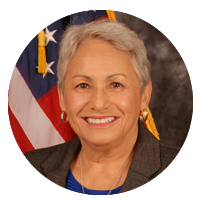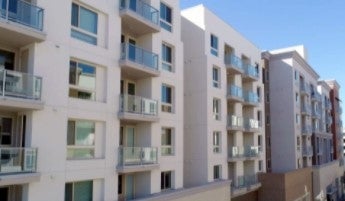The People's Business - September 17, 2021
Medical leadership from San Diego hospitals discuss how their operations have been affected by the pandemic in the COVID-19 Response and Recovery Committee Meeting. In the afternoon meeting, the San DIego City Council addresses two items. One considers changes to the Transient Occupancy Tax funding application process to remove obstacles for arts and culture organizations to access these funds.
From the Office of Council President Jennifer Campbell 
COVID-19 Response and Recovery Committee Meeting – Sept. 20, 2021 – 9 a.m.
The meeting, co-chaired by Councilmember Marni Von Wilpert and Council President Jennifer Campbell, will hear two informational items on the agenda.
Item 1 - San Diego Hospital Systems Present Information on Impact and Current Status of the Pandemic on San Diego Hospitals - Medical leadership from San Diego hospital systems including UC San Diego Health, Scripps Health, Sharp Healthcare, and Rady Children’s Hospital will present information about how the pandemic has impacted local hospital systems, the effort to collaborate, the challenges, and the current conditions at San Diego area hospitals.
Item 2 - County of San Diego Health and Human Services Agency Update - Dr. Jennifer Tuteur with the County Health and Human Services Agency will provide an update on the COVID-19 case rates, vaccine rates, provide information on variants, and any additional essential information.
City Council Meeting – Sept. 20, 2021 – 2 p.m.
One informational item and one discussion item fill the agenda.
 Item 200 – Revisions to City Council Policy 100-03, Transient Occupancy Tax (TOT) – City staff commissioned an equity assessment of the City’s arts and culture programs. The assessment also looked at protocols and procedures which identified additional obstacles to applying, successfully qualifying for, and managing a City funding agreement.
Item 200 – Revisions to City Council Policy 100-03, Transient Occupancy Tax (TOT) – City staff commissioned an equity assessment of the City’s arts and culture programs. The assessment also looked at protocols and procedures which identified additional obstacles to applying, successfully qualifying for, and managing a City funding agreement.
City staff have identified revisions to the Policy to clarify the general requirements and conditions for the TOT funding application process, and payment schedules and audit requirements for TOT funding can be substantially more equitable with policy adjustments.
This item was heard by the ED & IR Committee on July 28 and passed unanimously.
Item S400 - Second Amendment to Contract between the City of San Diego and Meyers Nave to Provide Continued Legal Services as Outside Panel Counsel - The City of San Diego currently has a contract with the law firm Meyers Nave. The City Attorney’s Office seeks approval of a Second Amendment to the Contract with the Law Firm to increase the total not-to-exceed amount to $850,000 from $500,000 to pay the firm for work that it has already performed on behalf of the City, in defending the City in an employment discrimination lawsuit brought by a management-level City employee and representing the City in three debarment-related litigation matters involving a City vendor.
 Item 201 – Informational Item Regarding the FY 2021 Consolidated Annual Performance and Evaluation Report (CAPER) for HUD Programs – The U.S. Department of Housing and Urban Development (HUD) requires local jurisdictions to prepare a CAPER in order to receive federal housing and community development funding for all HUD entitlement grants. The CAPER summarizes the City's activities implemented with the following HUD entitlement grant programs:
Item 201 – Informational Item Regarding the FY 2021 Consolidated Annual Performance and Evaluation Report (CAPER) for HUD Programs – The U.S. Department of Housing and Urban Development (HUD) requires local jurisdictions to prepare a CAPER in order to receive federal housing and community development funding for all HUD entitlement grants. The CAPER summarizes the City's activities implemented with the following HUD entitlement grant programs:
- Community Development Block Grant (CDBG): The primary objective of the CDBG program is the development of viable urban communities through the provision of improved living environments, expansion of economic opportunity, and decent housing. Grant funds are intended to primarily serve low- and moderate-income residents and areas.
- HOME Investment Partnerships Program (HOME): HOME is dedicated to increasing affordable housing opportunities for low-income households through the development and rehabilitation of affordable housing units and through direct financial assistance to low-income owners and tenants.
- Emergency Solutions Grants (ESG): ESG provides funding to (1) engage homeless individuals and families living on the street, (2) improve the number and quality of emergency shelters for Page 2 of 3 homeless individuals and families, (3) help operate these shelters, (4) provide essential services to shelter residents, (5) rapidly re-house homeless individuals and families, and (6) prevent families/individuals from becoming homeless.
---
To participate in the meeting, click on the agenda and follow the instructions.
You can watch the meeting on cable TV channel 24 or AT&T channel 99, or stream it online (external link).
Join our mailing list and get "The People's Business" delivered to your inbox. Find an index of past posts.
Follow us on Twitter (external link).

